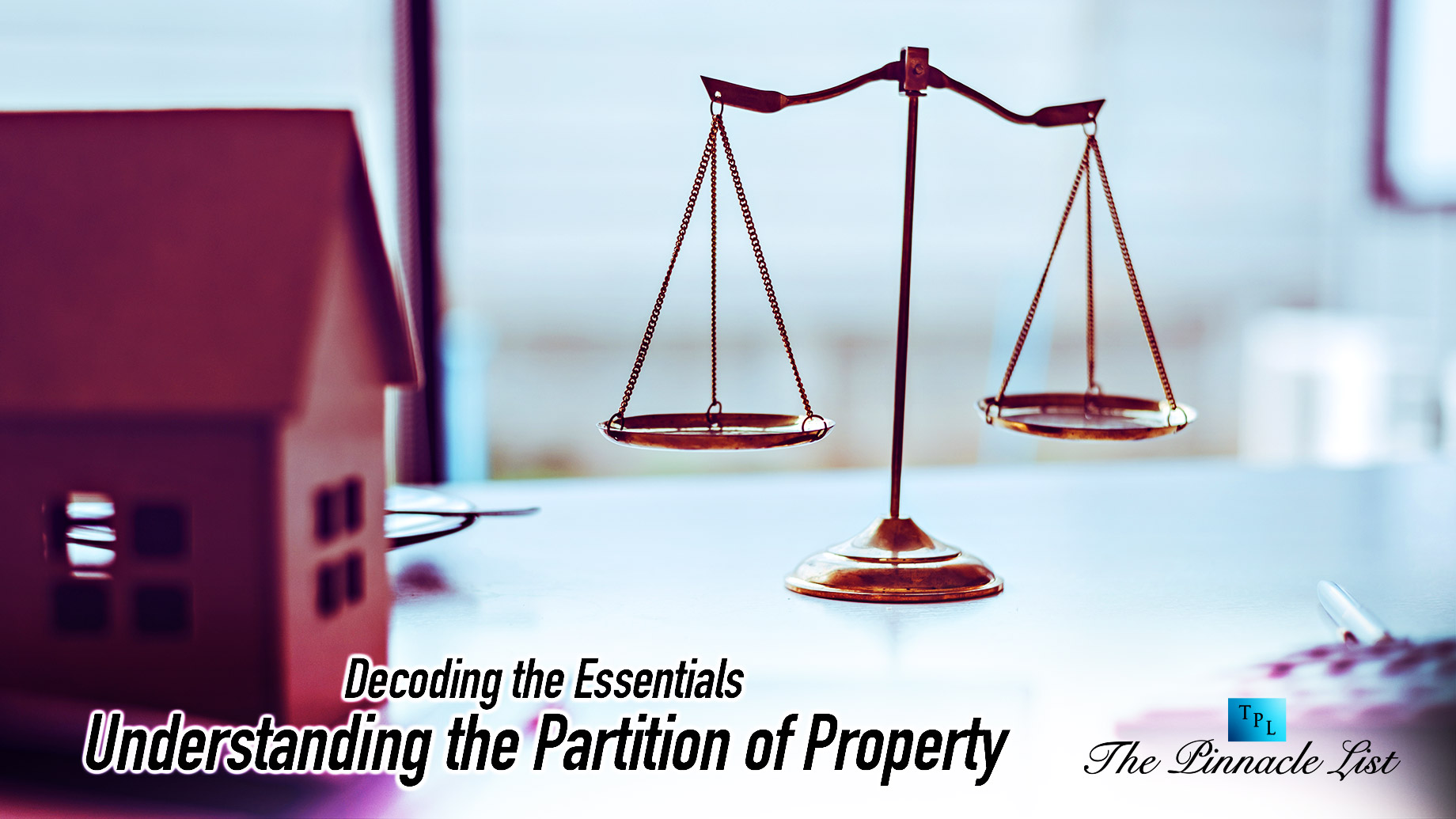
Property partition stands out as a crucial but often misunderstood concept in the complexities of real estate and family law, It’s a term that touches the lives of many, especially those dealing with inheritance disputes, divorces, or co-ownership situations. The process of partition can be intricate, invoking both legal and emotional challenges.
In this article, we’ll unpack the essentials of property partition.
What is Property Partition?
At its core, the partition of property refers to the division of property assets among co-owners. This process can be voluntary, where all parties agree on the division. Or it can be contentious, leading to a court-ordered partition.
The essence of partition is to conclude co-ownership. It allows individuals to move forward with separate portions of the property or its value. There are two primary ways to partition property: partition in kind and partition by sale.
Partition in Kind
A partition in kind involves physically dividing the property among the owners. It’s also known as an actual partition.
This method is often preferred when the property can be easily separated without diminishing value. For example, a large piece of undeveloped land owned by siblings can be split into equal parts, with each sibling taking ownership of their portion.
Partition by Sale
When the property cannot be divided equitably or doing so would significantly reduce its overall value, a partition by sale might be the chosen route. In this scenario, the property is sold, and the proceeds are distributed among the owners according to their ownership interests. This method is common with unique properties, such as single-family homes, where a physical division isn’t practical.
Navigating the Process
The process of real estate partitioning begins with an agreement among the co-owners. Or, if that’s not possible, a petition to the court. In voluntary partitions, owners can negotiate terms that best fit their needs and circumstances. This is often with the assistance of legal counsel or a mediator.
If the case goes to court, the judge will examine:
- The property
- The ownership shares
- Any claims or objections from involved parties
This is before deciding the best course of action.
Legal Considerations
Understanding the legalities surrounding the partition of property is vital. Property division laws vary by jurisdiction, influencing how partitions are handled. For instance, some states may favor partition in kind over partition by sale, or vice versa.
If the property is encumbered by mortgages or other liens, these debts must be addressed in the partition process. Consulting partition lawyers can help navigate these complexities. They ensure your rights are protected, and your interests are advocated.
Emotional and Financial Impacts
The partition of property can be emotionally taxing, especially when it involves familial relations or long-standing ownership disputes. The sentimental value of property, particularly homesteads and heirlooms, can’t be overlooked.
Financially, partitions can alter an individual’s net worth and investment portfolio. Adequate legal support and financial advice are essential in managing these impacts. It allows for a resolution that respects the emotional bonds to the property and the financial well-being of all parties involved.
Get a Fair Partition of Property Today
Understanding the partition of property is essential for ensuring a fair and amicable distribution of assets. It is a complex process that requires careful consideration and legal knowledge.
With the right information and guidance, individuals can navigate this process successfully. If you are facing a property partition, seek out professional assistance for the best outcome. Take charge of your property today!